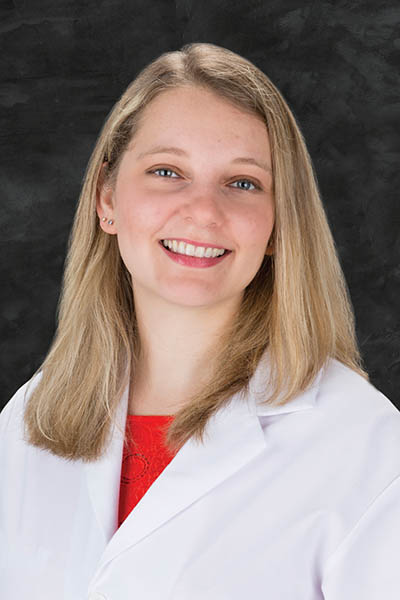
Women often take on the responsibility of coordinating their family’s health care needs. As a result, they may overlook their own well-being. However, it is crucial to prioritize your health just as much as your family’s. Comprehensive women’s health screenings are designed to detect and prevent common health issues in women.
When you stay up to date on these screenings, your health care provider can identify potential health issues early on, increasing the chances for less invasive treatments and better health outcomes.
“Regular screenings can detect many types of cancer in its early stages, when it is more likely to be treatable,” says Dr. Marlena Masavage, a board-certified OBGYN at Beaufort Memorial Obstetrics and Gynecology Specialists. “Screenings can also show signs of other serious health conditions, such as heart disease and diabetes.”
Read More: Your Next Checkup May Involve an Anxiety Screening
Screenings You Need in Your 20s and 30s
It’s common for young women to skip annual wellness visits. But it’s important to keep up with your preventive care even when you feel perfectly healthy. Regular screenings can help prevent minor health issues from developing into major problems. According to the U.S. Preventive Services Task Force and other leading organizations, the screenings you need during these decades include:
- Anxiety and depression screening. Your provider will ask questions about your mental health during your annual exam.
- Blood pressure screening. You should get your blood pressure checked every three to five years.
- Cervical cancer screening. Starting at age 21 and until age 29, women should have a Pap test every three years. Between 30 and 65, women should have Pap and HPV testing every five years or a Pap-only test every three years.
- Cholesterol screening. Starting at age 20, women at high risk of heart disease need this simple blood test every five years.
- Diabetes screening. Starting at age 35 (or earlier for women at high risk), you need a simple blood test to check for diabetes every three years.
- Sexually transmitted infections and HIV screening. If you are sexually active and have had more than one partner in your life, you need chlamydia and gonorrhea screenings, as well as at least one HIV test.
Women at increased risk of breast cancer or colorectal cancer may need to start screenings in their 30s. Your Beaufort Memorial provider can help you assess your risk and determine when to start screening.
Read More: Early Signs of Colorectal Cancer: What Adults Under 50 Should Know
Screenings You Need in Your 40s and 50s
As we get older, our bodies change and are more susceptible to certain health conditions. This is why it becomes even more important to keep up with regular health screenings and checkups. Your provider can reference your personal health history to help detect small changes in your health.
The following screenings are recommended throughout your 40s and 50s:
- Blood pressure screening. Women 40 and older should be checked for high blood pressure at least once a year.
- Breast cancer screening. Beginning at age 40, women need annual mammograms to screen for breast cancer.
- Cervical cancer screening. Regular HPV or Pap screening tests should continue every three to five years.
- Cholesterol screening. All women should start screening for high cholesterol by age 45 and continue regular screening at least every five years if results are normal.
- Colorectal cancer screening. At age 45, you should have your first colonoscopy to screen for colorectal cancer. If it is normal, you need another one at age 55. If your test finds precancerous polyps or other areas of concern, you will need screenings more frequently.
- Diabetes screening. Continue monitoring your blood sugar at least every three years.
- Lung cancer screening. If you are a former or current heavy smoker, low-dose CT scans to check for lung cancer are recommended annually starting at age 50.
- Osteoporosis screening. Talk with your provider about whether to start bone density scans to check for osteoporosis in your 50s.
If your blood pressure, blood sugar or cholesterol is high, your providers can help you learn how you can reduce those numbers and lower your risk of heart disease and diabetes.
Read More: Gynecologic Cancer: What Every Woman Should Know
Screenings for 60 and Beyond
Comprehensive women’s health care is crucial as you enter your 60s. All women need a DEXA (bone density scan) for osteoporosis at age 65. You should also continue with regular screenings for diabetes and heart disease as long as you are in good health and according to your own personal risk factors.
Your provider may recommend stopping certain cancer screenings later in life. As we age, our overall health and risk factors may change, and some screenings may no longer be necessary or appropriate. Additionally, certain cancer screenings may pose more risks than benefits for older adults, such as false positives that can lead to unnecessary invasive procedures. That being said, it is important to discuss your individual health needs and risk factors with your health care provider to determine the appropriate age to stop cancer screenings.
Your health care provider may recommend that you stop some cancer screenings, including:
- Breast cancer. Some women stop screening at age 75.
- Cervical cancer. Most women can stop screening at age 65.
- Colorectal cancer. Some women stop screening at age 75.
- Lung cancer. Screening is not recommended after age 80.
Trust Beaufort Memorial for Comprehensive Women’s Health Care
Whether you’re 21 or 71, women of all ages can benefit from women’s health services at Beaufort Memorial.
“We are here to help you navigate cancer screenings, stay up to date on vaccinations, look for signs of heart disease and prediabetes, and provide other preventive care services,” Dr. Masavage says. “We can also answer all your questions about birth control, pregnancy, menopause and everything else.”
Ready to catch up on your comprehensive women’s health screenings? Request an appointment with a women’s health provider at Beaufort Memorial.

